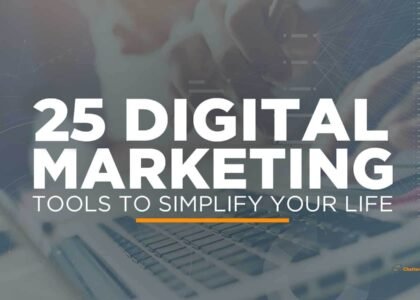The Rise of the Digital Marketer: Navigating the New Frontier of Marketing
In today’s rapidly evolving digital landscape, the role of the digital marketer has become increasingly crucial for businesses looking to stay ahead of the curve. As traditional marketing methods give way to more targeted, data-driven approaches, digital marketers are at the forefront of driving brand awareness, engagement, and ultimately, sales. This article explores the key responsibilities, skills, and career prospects of digital marketers in the 21st century.
What is a Digital Marketer?
A digital marketer is a marketing professional who specializes in leveraging digital channels and technologies to promote a brand, product, or service. Their primary responsibilities include:
- Content Creation: Developing engaging and relevant content tailored to the target audience across various platforms, such as websites, social media, and email.
- Social Media Management: Managing a brand’s social media presence to foster engagement, build community, and drive traffic to the website.
- Search Engine Optimization (SEO): Optimizing website content and structure to improve visibility and ranking on search engines, driving organic traffic.
- Pay-Per-Click (PPC) Advertising: Creating and managing targeted advertising campaigns on platforms like Google Ads and social media to reach specific demographics.
- Analytics and Reporting: Monitoring campaign performance using web analytics tools and providing insights to optimize strategies and demonstrate ROI.
Key Skills for Digital Marketers
To succeed in their role, ddigital marketers must possess a unique blend of technical, creative, and analytical skills. These include:
- Content Creation: Excellent writing skills, creativity, and an understanding of content marketing best practices.
- Social Media: Knowledge of various social media platforms, their algorithms, and how to create engaging content for each.
- SEO: Understanding of on-page and off-page optimization techniques, keyword research, and link building.
- PPC: Ability to create targeted ad campaigns, optimize bids, and analyze performance metrics.
- Analytics: Proficiency in web analytics tools like Google Analytics, and the ability to interpret data and draw actionable insights.
- Project Management: Strong organizational skills, the ability to prioritize tasks, and work effectively in a team.
- Adaptability: Willingness to continuously learn and adapt to the rapidly changing digital landscape.

Career Prospects for Digital Marketers
As the demand for digital marketing expertise continues to grow, so too do the career prospects for skilled professionals. Digital marketers can pursue a variety of roles, including:
- Digital Marketing Specialist: Responsible for executing digital marketing campaigns and projects, creating content, and analyzing performance.
- Social Media Manager: Manages a brand’s social media presence, creates content, engages with followers, and measures success.
- SEO Specialist: Optimizes website content and structure to improve search engine rankings and drive organic traffic.
- PPC Specialist: Creates and manages targeted advertising campaigns on platforms like Google Ads and social media.
- Digital Marketing Manager: Oversees the development and implementation of digital marketing strategies, manages teams, and reports to senior management.
The Future of Digital Marketing
As technology continues to evolve, the role of the digital marketer will only become more critical. Emerging trends such as artificial intelligence (AI), machine learning, and augmented reality (AR) are already transforming the way brands engage with their audiences. Digital marketers who stay ahead of the curve and embrace these new technologies will be well-positioned to thrive in the years to come.
Conclusion
In conclusion, the digital marketer is a vital member of any modern marketing team. By leveraging their unique blend of technical, creative, and analytical skills, digital marketers can help brands navigate the ever-changing digital landscape and achieve their marketing objectives. As the demand for digital marketing expertise continues to grow, so too do the career prospects for skilled professionals. With the right skills and mindset, digital marketers can play a key role in shaping the future of marketing.
FAQs
What qualifications do I need to become a digital marketer?
While a degree in marketing, communications, or a related field can be helpful, many digital marketers come from diverse backgrounds. The most important thing is to have a strong understanding of digital marketing principles and a willingness to continuously learn and adapt.
How much do digital marketers earn?
Salaries for digital marketers can vary depending on factors such as location, experience, and industry. According to Indeed, the average salary for a digital marketer in the United States is around $55,000 per year. However, salaries can range from $40,000 for entry-level positions to over $100,000 for experienced professionals in senior roles.
What is the job outlook for digital marketers?
The job outlook for digital marketers is very positive. According to the U.S. Bureau of Labor Statistics, employment in the marketing field is projected to grow by 6% between 2019 and 2029, faster than the average for all occupations. As more businesses recognize the importance of digital marketing, the demand for skilled professionals is expected to continue growing.
How can I gain experience as a digital marketer?
There are several ways to gain experience as a digital marketer, including:
- Completing internships or entry-level positions at digital marketing agencies or in-house marketing teams.
- Pursuing digital marketing certifications from platforms like Google, HubSpot, or Hootsuite.
- Building a portfolio of digital marketing projects, such as creating a blog or managing social media accounts for a small business or non-profit.
- Attending industry events, conferences, and meetups to network with other professionals and stay up-to-date with the latest trends and best practices.
What is the difference between a digital marketer and a traditional marketer?
The main difference between a digital marketer and a traditional marketer is the focus on digital channels and technologies. While traditional marketers may rely more on print advertising, direct mail, and other offline methods, digital marketers specialize in leveraging online platforms and data-driven strategies to reach and engage with their target audience. However, many modern marketing teams incorporate both digital and traditional tactics to create a comprehensive, multi-channel approach.






